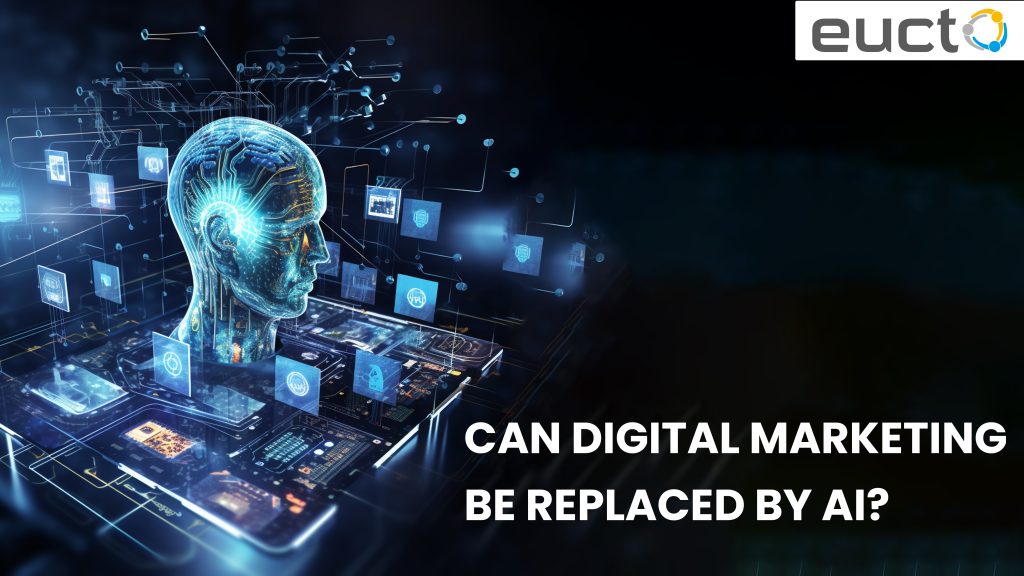
Digital marketing has seen rapid growth and evolution over the past decade. As artificial intelligence (AI) and machine learning technologies continue advancing, some speculate that AI may eventually replace many roles in digital marketing. However, the reality is far more nuanced. While AI can automate certain digital marketing tasks, human creativity, strategy, and emotional intelligence remain essential. For instance, a digital marketing agency in Chennai may utilize AI algorithms to optimize ad targeting or analyze data patterns, but it’s the human touch that crafts compelling brand stories, devises innovative campaigns, and builds genuine connections with audiences.
The Rise of AI in Marketing
AI is already aiding marketers in impactful ways. Chatbots utilize natural language processing to communicate with customers. Predictive analytics tools leverage machine learning algorithms to uncover key consumer insights from big data. Programmatic advertising platforms use automation to serve highly targeted, personalized ads.
Content recommendation engines, dynamic pricing software, customer data platforms, and more employ AI to optimize campaigns. As these technologies improve, AI will undoubtedly handle an increasing number of rote digital marketing responsibilities. Segmentation, targeting, bids/budget management, optimization – these tedious, numbers-focused tasks are ripe for automation. This enables marketers to focus more time on big-picture strategy and innovation.
The Limits of AI in Marketing
However, despite all its promise, AI still lacks fundamental human skills needed for effective marketing:
Creativity and Imagination: Crafting campaigns, narratives, and content that forge emotional connections requires distinctly human creativity. AI struggles with open-ended conceptualization or thinking “outside the box”. Strategy and Critical Thinking: High-level strategies such as positioning a brand, spotting market opportunities, or responding to disruption remains better suited for human judgment and intuition. Empathy and Emotional Intelligence: Understanding human emotions, making moving creative, and building relationships are innate human abilities no AI can replicate.
Ethics and Morality:
Automated systems focused solely on optimization introduce risks without governance. Ethical standards and societal impact should be considered. In essence, marketing combines art and science. The science is where AI excels. The art requires human prowess. The Outlook for Marketers Make no mistake, AI is transforming digital marketing in profound ways. Over 50% of organizations currently use AI for marketing and its adoption will only accelerate. By 2025, AI is projected to influence nearly all digital ads and marketing software tools. Yet while AI will partially automate tactical elements of marketing, humans still seem necessary for strategy, innovation and relationship-building. Just as innovative production technologies never eliminated human creativity, design or supervision in manufacturing, AI will enhance digital marketing rather than replace it.
Rather than fearing displacement by AI, digital marketers should embrace it as a valuable tool. One that frees them from repetitive tasks and empowers them to focus on meaningful, human connections with the people they serve. The marketing function endures not by calculations, but for its insights into the heart. This is humanity’s edge, one no algorithm can claim.
The Path Forward:
So while AI will disrupt digital marketing, through strategic adoption it can unlock human potential. As AI handles an ever-greater proportion of tactical activities, marketers have a momentous opportunity. To recenter their profession on imagination, strategy and empathy. To double down on the very human abilities no technology can replicate. Additionally, most marketing roles will likely change to incorporate new skills. As automation increases, digital marketers may need education in data science, design thinking and human psychology to complement their existing capabilities. Some may evolve into “AIMOs” – AI marketing orchestrators who strategize, liaise and oversee automated systems. Others may specialize as empathic “heart specialists” who focus solely on emotion, relationships and creativity.
Just as the social and creative roles did not disappear with industrialization, but multiplied into new forms, the automation wave in digital marketing will bring its own expansion of human talent requirements. There may be some painful workforce transitions in the interim, but ultimately humans remain irreplaceable in this field. With foresight and planning, digital marketers can evolve alongside technology to focus on the very things that make us human. This is where marketing’s future and promise will always reside.
